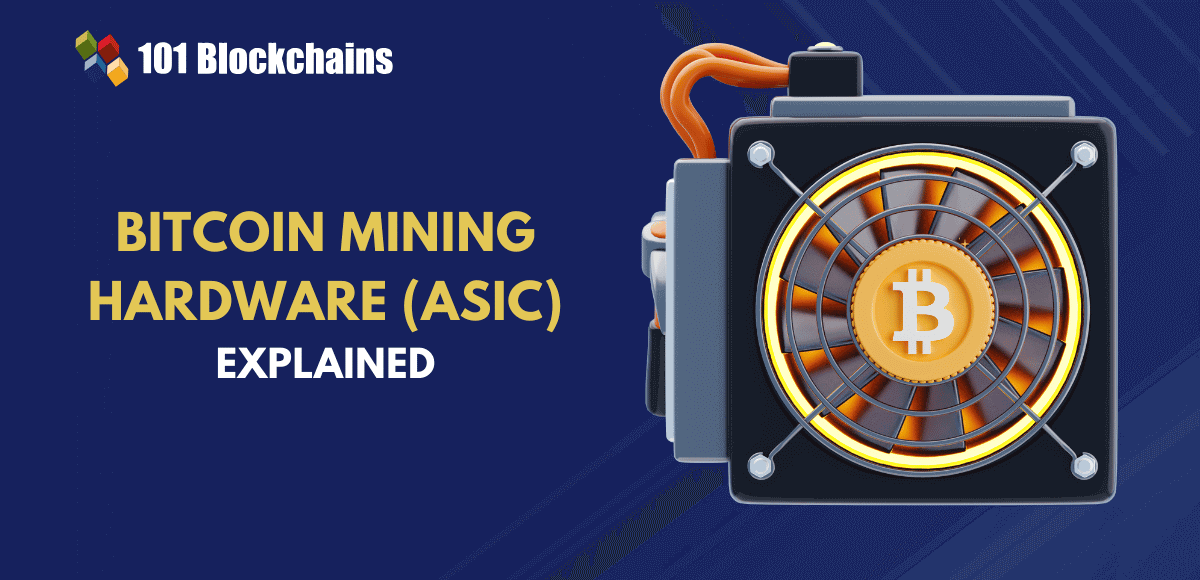Learn how blockchain truly works, master key definitions, and uncover what makes smart contracts so "smart." Dive into the fundamentals, gain valuable insights, and start your blockchain journey today!

Guides
Georgia Weston
on August 23, 2022
A Beginner’s Guide to Vyper
Smart contract programming has evolved as one of the prime necessities in the modern tech ecosystem. Blockchain networks made it easier to bring the vision of smart contracts to reality, thereby popularizing smart contract programming languages. Therefore, many candidates want to learn Vyper, a smart contract programming language and credible alternative to Solidity, for various reasons.
Is it necessary to learn another programming language for developing smart contracts? Solidity does an excellent job of supporting developers in creating smart contracts on Ethereum. However, it does not mean that you could not try something better than Solidity, at least in certain aspects. The following discussion will illustrate an introduction to Vyper programming language along with a detailed overview of its various components. Most important of all, you could also figure out how it is better than Solidity for developing smart contracts.
Build your identity as a certified blockchain expert with 101 Blockchains’ Blockchain Certifications designed to provide enhanced career prospects.
What is Vyper?

The first thought on your mind right now must revolve around the question “What is a Vyper?” when you are searching for smart contract programming languages. The doubt itself served the answer quite well as Vyper is just a smart contract language paradigm that follows the syntax of Python 3. Vyper focuses on the Ethereum Virtual Machine or EVM, which is a simulated global computer running in parallel to the Ethereum blockchain.
EVM is a significant instrument in facilitating the development of highly complex transactions alongside self-executing smart contract agreements governed by smart contracts. How will Vyper blockchain applications match the value benefits offered by Solidity? Interestingly, Vyper may support developers with the transition towards Ethereum Proof-of-Stake consensus algorithm.
How is Vyper Different from Solidity?
The design of Vyper follows a more practical and minimalist perspective on mechanisms for reading and writing smart contracts. Most important of all, Vyper has maintained a solid emphasis on straightforwardness, audits and simplicity of syntax. Therefore, one could infer how Vyper can be considerably different from Solidity, especially in terms of features.
Vyper has a considerably limited set of features in comparison to Solidity, albeit with some significant advantages. Any Vyper tutorial would showcase how the new smart contract programming language can outperform the existing leader, Solidity. With the assurance of a smaller feature set, Vyper operators could achieve better security due to limited points of vulnerability for abusing an extended set of features.
The extended set of features in Solidity and its flexibility have been called to question for vulnerabilities. For example, smart contracts with bugs and malicious design patterns can be one of the formidable concerns on Solidity. However, Vyper blockchain programming language comes with a unique design for avoiding malicious design patterns. It does not guarantee complete immunity from suspicious design patterns. On the other hand, Vyper can make sure that it is impossible to get most of them through the verification.
Excited to learn about the key elements of Solidity? Check the presentation Now on Introduction To Solidity
Why is Vyper Important?
The advantage of Vyper over Solidity, irrespective of or due to the limited set of features, is a top reason for encouraging interest in the programming language. Therefore, any individual interested in the field of smart contract development could try learning more about Vyper. Another interesting highlight about Vyper refers to the similarities in syntax between Vyper and Python. The inspiration from Python in Vyper gives a flexible opportunity to learn Vyper when you have Python programming skills. If you are a long-time Python programmer, you will experience limited difficulties in expressing your ideas.
You must also have curiosity regarding the use of Vyper in production. What are the top platforms using Vyper? It is important to note that Vyper is the programming language for the original Uniswap project. As of now, the successful projects based on Vyper include Curve and Yearn. Therefore, you can clearly understand how Vyper harbors considerable potential for making it to your training priorities.
Principles and Features of Vyper
The description of Vyper for beginners would remain incomplete without the outline of its principles. The principles of Vyper set the programming language apart from other smart contract development languages. Here is an overview of the three distinct principles and their meaning in the Vyper landscape.
-
Simplicity
The first aspect of Vyper focuses on simplicity of the language and compiler. It basically means that the programming language, as well as the compiler implementation, must always strive for simplicity.
-
Security
The principles of Vyper also emphasize ensuring natural abilities for security of smart contracts. Security principle in Vyper definitely serves as a striking highlight for considering learning about the language.
-
Auditability
One of the recurring elements in answers to “What is a Vyper?” focuses on minimizing features to facilitate better auditability. According to the auditability principle, Vyper must aim to ensure that code is human-readable. On the other hand, the programming language must impose considerable difficulties in writing malicious code. It is important to ensure that the code is readable for users without any significant prior experience in Vyper.
The distinct principles underlying the design of Vyper set an ideal basis for understanding the feature set of the language. What are the features you can expect in Vyper? Here are some of the most notable features of Vyper smart contract programming language.
- Decidability ensures computation of a specific upper limit on gas consumptions for a specific Vyper function call.
- Vyper also supports bounds and overflow checking for arithmetic and array access.
- Strong typing support.
- Restricted support for pure functions as variables marked ‘constant’ could not have the privileges for changing the state.
- Extended support for decimal fixed point numbers and signed integers.
- Small compiler code with better ease of understanding.
The outline of the principles and features in Vyper programming language draws attention to another significant highlight in this tutorial. Based on the objectives and principles of Vyper, it would also ensure exclusion of certain features.
Features Excluded from Vyper
The limited feature set of Vyper is one of the foremost highlights in any tutorial on the programming language. A limited set of features ensures better security and auditability of smart contract development. However, it is also important to learn about the features which Vyper does not include. Smart contract programmers cannot find the following features with Vyper.
-
Modifiers
The biggest detail in a Vyper tutorial with respect to missing features would obviously turn towards modifiers. Solidity can use modifiers for including verifications implemented before executing or after execution and state changes. Vyper does not feature modifiers as they can help in writing malicious code. Therefore, it is practically impossible to add any arbitrary state changes, pre-conditions or post-conditions in the code. Modifiers also enable the creation of code with execution jumping invariably around the file, which can influence auditability.
-
Inline Assembly
The exclusion of inline assembly is one of the important highlights of Vyper smart contract development language. With an inline assembly, it would be difficult to search for a specific variable name to find all instances of reading and modification in the variable.
-
Class Inheritance
Class inheritance is another missing feature from Vyper programming language for ensuring auditability. The objective of class inheritance drives the need for jumping between multiple files to understand the functioning of a program. It also demands that people must understand the rules of precedence in the event of conflicts. Vyper avoids class inheritance to reduce the complications in code, thereby contributing to better auditability.
-
Recursive Calling
A guide on Vyper for beginners also draws attention to the lack of recursive calling. The official documentation of Vyper suggests that recursive calling can create difficulties in setting an upper limit on gas consumption. As a result, recursive calling can lead to many gas limit attacks.
-
Function Overloading
The list of excluded features on Vyper also emphasizes function overloading. Function overloading can create confusion regarding the function being called at a particular time. On top of it, function overloading also creates difficulty in searching through code. The lack of function overloading in Vyper ensures safety from misleading code and complications in searching through code.
-
Operator Overloading
The implications of operator overloading also affect the Vyper blockchain, which does not have the concern. Operator overloading could lead to execution of misleading code. For example, overloaded operators can execute commands which are not visible immediately, such as transferring funds. Vyper does not have to deal with these troubles in the absence of operator overloading.
-
Binary Fixed Point
The guide to Vyper would also emphasize the lack of binary fixed points. On the contrary, it goes for decimal fixed points. Why? Decimal fixed point values offer exact and precise representation when scripted in code. On the other hand, binary fixed points generally need approximations which could influence the precision of the results.
-
Infinite-length Loops
Another smart contract language feature you won’t find in Vyper would be the infinite-length loops. These loops can create difficulties in setting an upper limit on gas consumption, thereby leading to gas limit attacks. Without infinite-length loops, Vyper can easily serve promising security improvements.
As you can notice clearly, the features excluded from Vyper are not completely deliberate in nature. You can notice that every excluded feature can affect the security and auditability of code. Most important of all, it is important to note that Vyper does not try hard to replace other smart contract programming languages. On the contrary, it would work on introducing new measures or create difficulties in existing processes for achieving better security.
Curious to understand the complete smart contract development lifecycle? Join the Standard & Premium Plans and get free access to the Smart Contracts Development Course Now!
Getting Started with Vyper
The important highlights of a Vyper tutorial would also draw attention to getting started with the language. You can use Python for installing Vyper, and remember that you can build Vyper only through Python 3.6 and above. The official Python website can help you with installation of correct version of Python. The first step in installing Python is the creation of a virtual environment.
You must take note of the fact that a virtual Python environment is ideal for Vyper installation. The virtual environment can ensure that the newly installed packages and in-built dependencies would stay within your Vyper installation. It would not modify or influence the other development environments. You can take care of managing the virtual environment through tools such as Python Poetry or pyenv.
Once you are ready with the virtual environment, you can install Vyper. It is important to note that every tagged variant of Vyper must be uploaded to “pypi,” and you can install the variant by using the ‘pip’ command like,
pip install vyper
You can also specify the particular version you want to install. Remember that you can go through the supported versions of Vyper by using ‘nix’ through the nix package search functionality.
Potential of Vyper
The features and differences with Solidity in its feature set to showcase that it is a powerful smart contract programming language. One of the first things you can admire about Vyper programming language is the security. The language would impose any deliberate measure, to the extent of making the process of writing code difficult, to ensure security.
At the same time, the potential of Vyper is also evident in how it aligns with the syntax-related standards for the target EVM. Vyper ensures direct compilation to EVM bytecode without any interpretation. You must not miss the fact that Vyper and Solidity can exhibit interoperability with the support for external calls between different contracts.
Most important of all, the minimalist approach to smart contract design can serve some credible value advantages for readers. Therefore, Vyper could easily emerge as a fierce contender to popular smart contract programming languages in the future.
Want to get an in-depth understanding of Solidity concepts? Enroll in Solidity Fundamentals Course Now!
Final Words
The detailed assessment of the background of Vyper and its principles and features show that it is a strong competitor to Solidity. It is a reliable choice for anyone interested in learning about smart contract development. You can learn Vyper to establish your skills in a minimalist smart contract language focused more on security and auditability.
The growing concerns of exploitation of vulnerabilities on different blockchain networks call for additional security measures. Vyper features a unique design wherein it continuously works on revising its feature set. While some may assume the lack of certain features as a disadvantage for Vyper, they have actually boosted the potential of the language. Keep exploring to learn more about Vyper in detail.
*Disclaimer: The article should not be taken as, and is not intended to provide any investment advice. Claims made in this article do not constitute investment advice and should not be taken as such. 101 Blockchains shall not be responsible for any loss sustained by any person who relies on this article. Do your own research!






